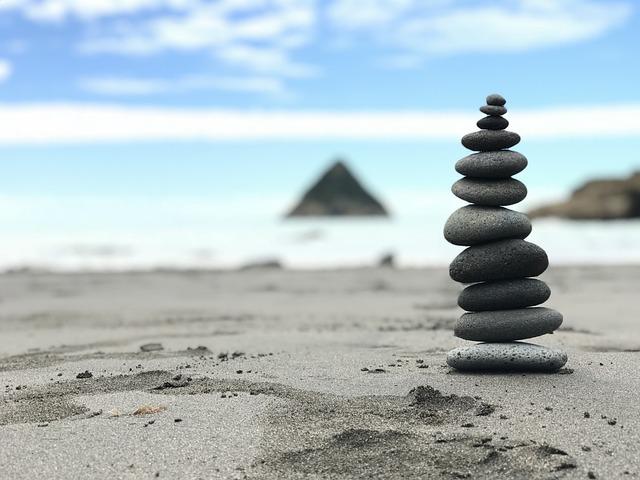In a notable step toward enhancing financial integration and economic cooperation, the European Commission has officially welcomed the inclusion of Moldova and North Macedonia in the Single Euro Payments Area (SEPA). This landmark decision not only facilitates seamless cross-border transactions for individuals and businesses in these countries but also underscores the european Union’s commitment to expanding financial cohesion in the region. As Moldova and North Macedonia join the ranks of EU member states and other participating nations, this move is expected to bolster trade, reduce transaction costs, and promote financial stability, paving the way for deeper ties within the European economic framework. This article will explore the implications of this inclusion, its potential impact on local economies, and the broader significance for EU integration efforts.
European Commissions Strategic Move to Integrate Moldova and North Macedonia into SEPA framework
The European Commission’s decision to integrate Moldova and North Macedonia into the Single Euro Payments Area (SEPA) marks a significant step towards enhancing financial stability and fostering economic growth in the region. With this integration,both countries are set to benefit from a more streamlined payment system,allowing for greater efficiency in cross-border transactions. The SEPA framework is instrumental in promoting financial inclusion and improving access for businesses and individuals alike, enabling smoother trade relations within Europe.
Key benefits of Moldova and North Macedonia’s inclusion in SEPA include:
- Reduced Costs: Lower transaction fees for cross-border payments,making it more affordable for consumers and businesses.
- Faster Transactions: Enhanced processing times for euro-denominated payments, increasing the speed of commerce.
- Increased Security: Adoption of standardized security protocols protects against fraud and ensures safe financial transactions.
- Better Access: Increased financial inclusivity for citizens and small businesses in both countries.
To further illustrate the potential impact, the table below highlights the comparative transaction fees before and after SEPA integration:
| Payment Type | Before SEPA | After SEPA |
|---|---|---|
| Domestic Transfers | €1.50 | €0.50 |
| Cross-Border Transfers | €5.00 | €1.00 |
| Business Payments | €3.00 | €0.70 |

Implications for Regional economic Stability and Financial Collaboration in Southeast Europe
The recent decision to include Moldova and North Macedonia in the Single Euro Payments Area (SEPA) serves as a significant milestone for financial integration in Southeast Europe. This move not only enhances the payment systems of both nations but also creates a more unified economic landscape in the region. By facilitating seamless cross-border transaction capabilities, it reduces complexities and costs for businesses and consumers alike.The implications for regional economic stability include:
- Increased Investment Opportunities: Greater financial collaboration encourages foreign investments, as streamlined payment processes simplify transactions.
- Enhanced Economic Resilience: A unified payment system reduces the risks associated with currency fluctuations and regulatory discrepancies.
- Collaboration with EU Standards: Aligning with EU financial frameworks promotes best practices and stability in the local economies.
Furthermore, the integration into SEPA can stimulate collaborative initiatives among Southeast European nations. by establishing a common platform, regional countries can more easily engage in policy dialogues and financial partnerships that foster shared economic growth. A possible framework for this collaboration could involve:
| collaborative initiative | Expected Outcome |
|---|---|
| Joint Investment Projects | Enhanced infrastructure and business development |
| Cross-border Trade Agreements | Increased market access and competitiveness |
| Shared Financial Education Programs | Improved financial literacy and economic participation |

Examining the Benefits for businesses and Consumers in Moldova and north Macedonia
The inclusion of Moldova and North Macedonia in the Single Euro Payments Area (SEPA) presents significant advantages for both businesses and consumers. for businesses, the streamlined payment processes will facilitate easier cross-border transactions, reducing the time and costs associated with international trade. Enhanced cash flow management is expected as companies can process payments more efficiently, contributing to a healthier economic environment. Moreover, the adoption of standardized payment formats will likely reduce errors and disputes, enabling businesses to focus more on growth and innovation.
Consumers also stand to gain substantially from this integration.With the adoption of SEPA, individuals can enjoy improved access to banking services, allowing for faster and more cost-effective money transfers within Europe. This facilitates not just local purchases but also boosts online shopping and service access. Notably,the emphasis on security and consumer protection in SEPA means that consumers can engage in transactions with greater confidence. Consequently, one can anticipate a rise in consumer spending, ultimately bolstering the economies of both Moldova and North Macedonia.

Recommendations for Streamlining Payment Processes and Ensuring Compliance with EU Standards
To enhance the effectiveness of payment processing systems, stakeholders must focus on several key areas. First, adopting a unified payment framework will help to minimize discrepancies and ensure seamless transactions across borders. This includes integrating systems that adhere to the International Organization for Standardization (ISO) standards, which fosters compatibility and reduces processing times. Additionally,leveraging cutting-edge technologies such as blockchain and artificial intelligence can facilitate real-time transaction verification and fraud detection,which are crucial for maintaining trust and security in financial operations.
Moreover, organizations should prioritize ongoing training and education for their staff regarding compliance with EU regulations. This ensures that employees are well-versed in Amending European Payment Services Directive (PSD2) requirements, reducing the risk of non-compliance penalties. Regular audits are also advisable to assess adherence to these regulations. To illustrate the impact of implementing these recommendations, consider the following comparison of transaction speeds and compliance rates before and after adopting standardized practices:
| Before standardization | After standardization |
|---|---|
| Transaction Speed: 3-5 days | Transaction Speed: 1-2 days |
| Compliance Rate: 70% | Compliance Rate: 95% |

Future Prospects for Enhanced Trade relations Within the Single European Payment Landscape
The recent inclusion of Moldova and North Macedonia in the Single euro Payments Area (SEPA) marks a significant milestone in fostering economic integration and enhancing trade relations across Europe. This expansion is anticipated to facilitate smoother transactions, reduce costs, and boost cross-border commerce. As these nations align their payment systems with European standards, businesses can expect to benefit from:
- Improved Accessibility: Enhanced financial services will enable easier access to European markets for Moldovan and North Macedonian enterprises.
- Increased Competitiveness: Local businesses can now compete more effectively in the EU marketplace, opening new avenues for growth.
- Streamlined Processes: With standardized payment methods, companies will experience faster transaction speeds and reduced operational inefficiencies.
Moreover, the integration of these countries into SEPA is expected to promote bilateral and multilateral trade agreements and harmonize regulatory frameworks. This alignment fosters investor confidence and paves the way for a more autonomous and resilient economic landscape in the region. the benefits to expect include:
| Future Benefits | Description |
|---|---|
| Economic Growth | Boost in GDP as trade barriers diminish. |
| Job Creation | Increased demand leading to new employment opportunities. |
| Innovation | Encouragement for technological advancements within financial systems. |

Key Takeaways
the inclusion of Moldova and North Macedonia in the Single Euro Payments Area marks a significant milestone in the European Union’s ongoing efforts to foster economic integration and enhance financial cooperation across the region. This decision not only streamlines cross-border transactions for businesses and consumers in these countries but also underscores the EU’s commitment to expanding its financial frameworks to embrace neighboring nations. As Moldova and North Macedonia adopt these new payment systems, they can expect to benefit from greater financial stability, reduced transaction costs, and improved access to the European market.This development paves the way for deeper economic ties and exemplifies the EU’s ambition to promote a more interconnected and unified Europe. The path ahead promises to bring further opportunities for collaboration and growth, reinforcing the importance of a cohesive approach to financial services within the continent.















Unexpected Allies: The G.O.P.’s Unlikely Embrace of Putin’s Russia